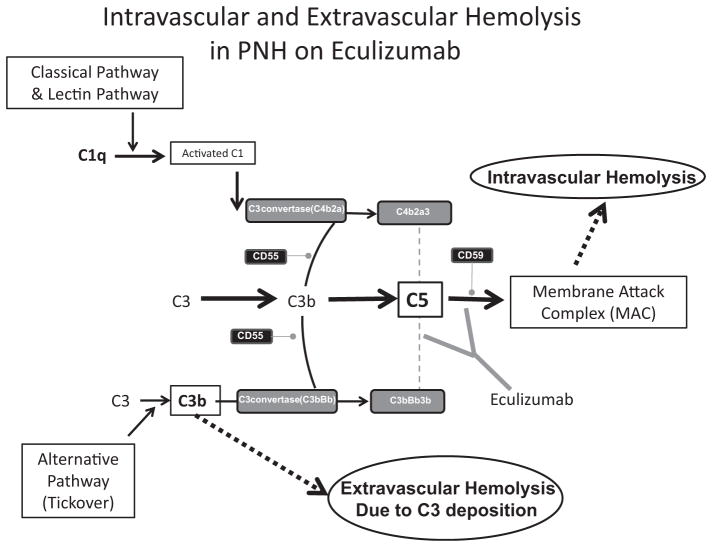Fig. 2.
The complement cascade, paroxysmal nocturnal hemoglobinuria (PNH), and eculizumab. PNH cells have a deficiency in glycosylphosphatidylinositol-anchored proteins on their cell surface. Absence of CD55 and CD59 leads to uncontrolled complement activation on the surface of PNH cells. Deficiency of CD59 increases MAC formation and induces intravascular hemolysis, which is central to the pathophysiology of PNH. Deficiency of CD55 leads to increased C3 convertase activity and C3d-associated extravascular hemolysis. Eculizumab therapy for PNH is a humanized monoclonal antibody that targets C5. By preventing C5 activation, eculizumab prevents the formation of the MAC, leading to a significant reduction in intravascular hemolysis of PNH cells. Use of eculizumab can lead to increased extravascular hemolysis.

